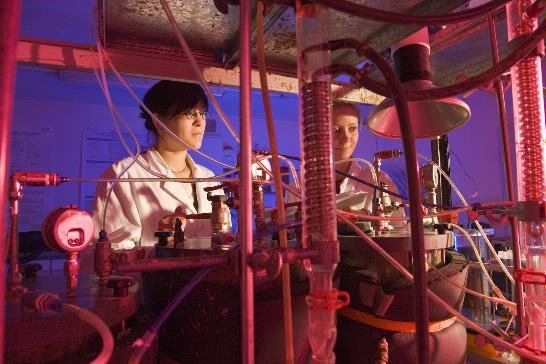Inhaltsbereich Optimisation of co-digestion in terms of the specific biogas production, the product quality, and its integration in regional waste and wastewater management concepts
Co-digestion is a four stage process. Organic waste and sewage sludge or renewable primary products and manure are degraded by microorganisms to methane and carbon dioxide. There are two profits: The digested sludge is a valuable fertilizer or soil conditioner and the gas generates renewable energy.
Since fermentation is a complex process, biogas reactors are still known as “black boxes”. Mostly they are not run at their maximum loading rate due to the possible failure in the process by organic overloading. This means that there are still unused capacities to produce more biogas in less time.
Investigations of different large-scale biogas plants showed that fermenters are operated containing different amounts of volatile fatty acids. These amounts can vary so much that one of two digestors, both possessing the same volatile fatty acid (VFA) concentration, does not produce gas anymore while the other is still at work. A reason for this phenomenon might be found in the composition of the microbial communities or in differences in the operation of the plants. To gain a better understanding of the “black box”, structural changes in microbial communities under different operation are investigated. A genetic fingerprint based on 16S rDNA (PCR-SSCP) is used to characterise the microbial community. Besides experiments in the laboratory, large-scale biogas plants are not only monitored, but also experiments as far as possible are accomplished.


